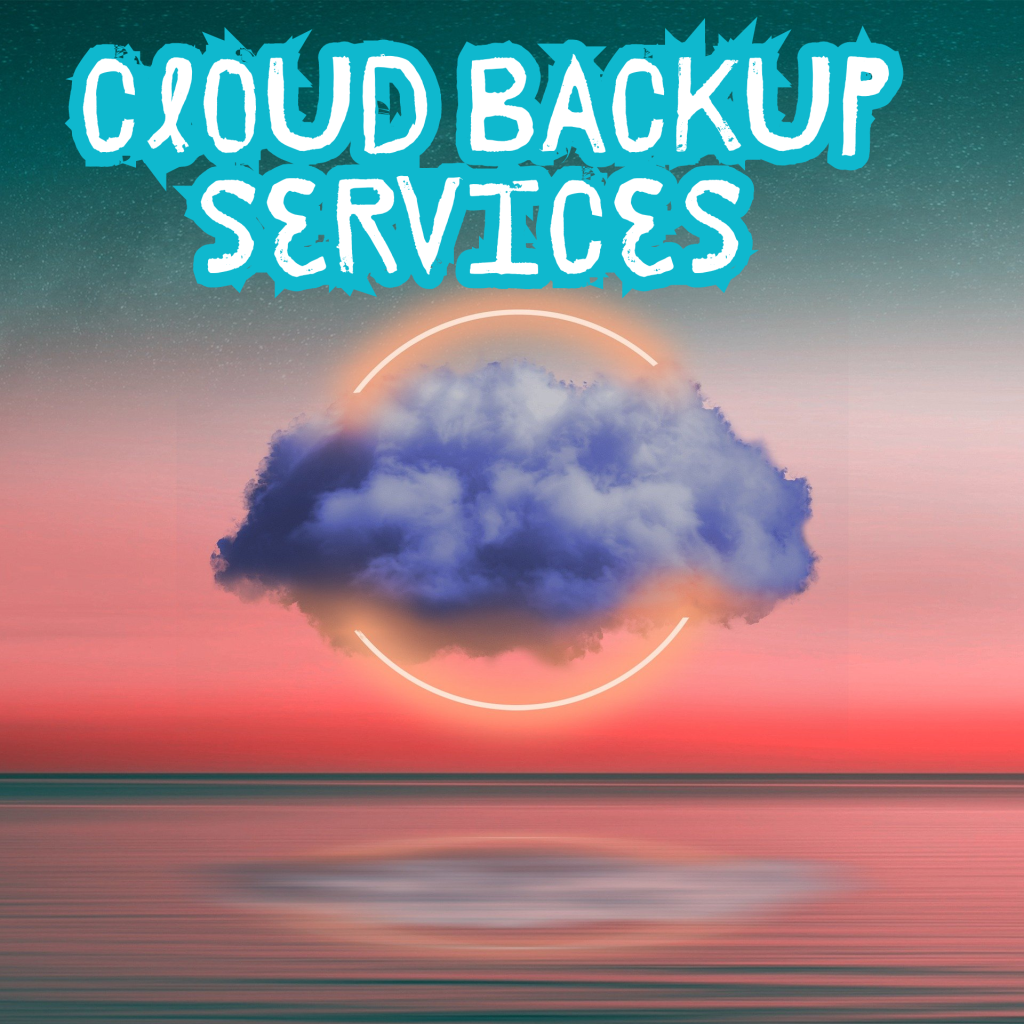Effective data management is crucial for businesses, particularly when moving operations to the cloud. As companies adopt cloud solutions, having a reliable Cloud Backup plan becomes essential. Data loss can occur from various sources, including hardware failures, malicious attacks, or simple human mistakes. Implementing a comprehensive backup strategy ensures that sensitive data is always protected. In this article, we will dive into why backup solutions are critical for cloud computing, the benefits and drawbacks they bring, and address common concerns about using cloud-based backup services.

Understanding Cloud Backup: What Is It?
Cloud backup is a process where data is transferred over the internet to an off-site server maintained by a cloud service provider. This ensures that your data is securely stored and can be easily retrieved in case of data loss. Unlike traditional backup methods, which often require physical storage devices, cloud backup leverages the scalability and flexibility of the cloud, making it an ideal solution for businesses of all sizes.
The Mechanism of Cloud Backup
Cloud backup works by continuously or periodically backing up your data to a remote server. This is done via a secure internet connection, allowing users to access their data from any device at any time, provided they have an internet connection. This level of accessibility is vital for remote work and global teams.
The Unmatched Benefits of Cloud Backup Solutions
1. Accessibility: Data Anytime, Anywhere
Cloud backups allow users to access their data from any location, making it easy for remote teams to collaborate and stay productive. This flexibility is essential in today’s increasingly mobile workforce.
2. Scalability: Growing with Your Business
As a business expands, so do its data storage needs. Cloud backup services offer scalable solutions that allow businesses to increase their storage capacity without the need for significant investments in physical hardware.
3. Cost-Effectiveness: Save Money While Storing Data
Many cloud backup services operate on a pay-as-you-go model, significantly reducing costs associated with purchasing and maintaining physical storage devices. This financial flexibility is particularly beneficial for small to medium-sized businesses.
4. Automated Backups: Simplifying Data Management
Most cloud backup solutions come with features that allow for automated backups. This ensures that your data is regularly updated without the need for manual intervention, providing peace of mind that your information is always safe.
Popular Cloud Backup Services: Your Options Explained
When considering cloud backup solutions, several reputable services cater to different business needs:
– Backblaze: Simple and Affordable Data Backup
Backblaze is known for its simplicity and affordability, offering unlimited data backup for personal computers and business systems.
– Acronis: Advanced Security Features for Peace of Mind
Acronis provides robust backup solutions with advanced security features, including ransomware protection and encryption options.
– Carbonite: Automatic Backups for Small Businesses
Carbonite is a popular choice for small to medium-sized businesses, offering automatic backups and various storage options tailored to different needs.
– Microsoft OneDrive: Seamless Integration with Microsoft Tools
OneDrive integrates seamlessly with other Microsoft applications, making it convenient for users within that ecosystem to store and share files securely.
The Dark Side of Cloud Backup: Disadvantages to Consider
While cloud backup solutions offer numerous advantages, they also come with potential downsides:
1. Dependence on Internet Connectivity: The Connectivity Issue
Cloud backups require a stable internet connection. Poor connectivity can hinder backup processes and data retrieval, making it essential to have a reliable internet service.
2. Ongoing Costs: Understanding Subscription Fees
Although cloud backup can be cost-effective, businesses may incur ongoing subscription fees that can add up over time. It’s important to assess your budget and choose a service that aligns with your financial strategy.
3. Data Security Concerns: Safeguarding Sensitive Information
Storing sensitive data in the cloud can pose security risks, especially if proper encryption and security measures are not in place. Businesses should ensure they choose providers with strong security protocols.
4. Limited Control: Relying on Third-Party Services
When using third-party cloud services, businesses may have limited control over their data, relying on the provider for security and compliance. It’s crucial to read and understand the terms of service before committing to a provider.
Types of Cloud Computing: Finding the Right Backup Solution
Understanding the different types of cloud computing can help businesses choose the right backup solutions:
– Infrastructure as a Service (IaaS): Flexible Resource Management
IaaS provides virtualized computing resources over the internet, allowing businesses to rent servers, storage, and networking capabilities, which can be particularly useful for companies requiring extensive computing power.
– Platform as a Service (PaaS): Focused on Development
PaaS offers a platform for developers to build, test, and deploy applications without managing the underlying infrastructure. This can include tools for application hosting and development.
– Software as a Service (SaaS): Convenient Application Access
SaaS delivers software applications over the internet, eliminating the need for installation and maintenance. Users typically access SaaS applications via a subscription model, which can streamline software management.
What Is Cloud Computing? A Simplified Definition
Cloud computing is a technology that enables users to access and store data and applications over the internet instead of on local servers or personal computers. It allows for increased efficiency, flexibility, and scalability in data management. For example, using Google Drive to store and share files exemplifies cloud computing in action.
Key Benefits of Cloud Computing: Why Businesses Should Transition
1. Cost Savings: Reducing IT Expenses
Cloud computing eliminates the need for businesses to invest heavily in hardware and software, reducing overall IT costs.
2. Flexibility: Adapting to Business Needs
Businesses can quickly scale resources up or down based on their needs, making it easier to adapt to changing demands.
3. Collaboration: Enhancing Teamwork and Efficiency
Cloud computing facilitates better collaboration among teams, as multiple users can access and work on documents simultaneously.
4. Disaster Recovery: Protecting Data in Emergencies
Many cloud service providers offer built-in disaster recovery solutions, ensuring that data is safe and can be restored in case of emergencies.
Weighing the Advantages and Disadvantages of Cloud Backup Solutions
Advantages of Cloud Backup
- Remote Access: Data can be accessed from anywhere, promoting flexibility and remote work capabilities.
- Automatic Updates: Automated backup processes ensure that data is regularly updated without manual effort.
- Scalability: Businesses can easily adjust their storage needs as they grow.
Disadvantages of Cloud Backup
- Internet Dependency: Cloud backups rely on a stable internet connection, which can be a barrier in certain situations.
- Ongoing Costs: Subscription models may lead to unforeseen costs as data storage needs increase.
- Data Security Risks: Sensitive data may be at risk if proper security measures are not implemented.
Can You Use a Cloud Server to Backup Your Data? True or False?
The Answer: Yes, Absolutely!
A cloud server can be effectively used to backup your data. Cloud servers offer scalable storage solutions that are accessible from anywhere, making them an excellent choice for data backup.
The Essential Role of Backup Solutions in Cloud Computing
backup solutions in cloud computing are crucial for safeguarding data and ensuring business continuity. While cloud backup services provide numerous benefits, businesses must carefully consider their needs, weigh the advantages and disadvantages, and choose the right service to protect their valuable data. By understanding the importance of backup solutions and utilizing effective cloud strategies, businesses can secure their data and thrive in the digital age.
Explore Additional Resources for Cloud Backup Solutions
In today’s ever-evolving digital landscape, the importance of robust cloud backup solutions cannot be overstated. To help you better understand the various options available and enhance your decision-making process, we’ve compiled a list of reputable external resources. These links provide valuable insights, user experiences, and detailed information on cloud backup services. Whether you are considering implementing a backup solution for your personal data or your business, these resources will guide you through the essential features, benefits, and best practices.
Here are some useful links to further explore cloud backup solutions and improve your data management strategies:
- Backblaze Cloud Backup
Backblaze Cloud Backup – Backblaze provides simple and affordable cloud backup solutions that allow users to easily back up their data and recover it when needed. Check out their features and user-friendly interface. - Acronis Backup Solutions
Acronis Backup – Acronis combines backup with advanced security features, offering a comprehensive solution that keeps user data safe. Explore their interactive demo to see how it works. - Carbonite
Carbonite Cloud Backup – Carbonite provides automatic backups and easy recovery options tailored for both individuals and businesses. Their customer testimonials highlight user experiences and engagement. - Microsoft OneDrive
OneDrive for Business – OneDrive not only offers cloud storage but also enhances collaboration among users. Learn how teams can work together seamlessly while keeping their data secure.
By exploring these resources, you can deepen your understanding of cloud backup solutions and how they can effectively protect your valuable data.

